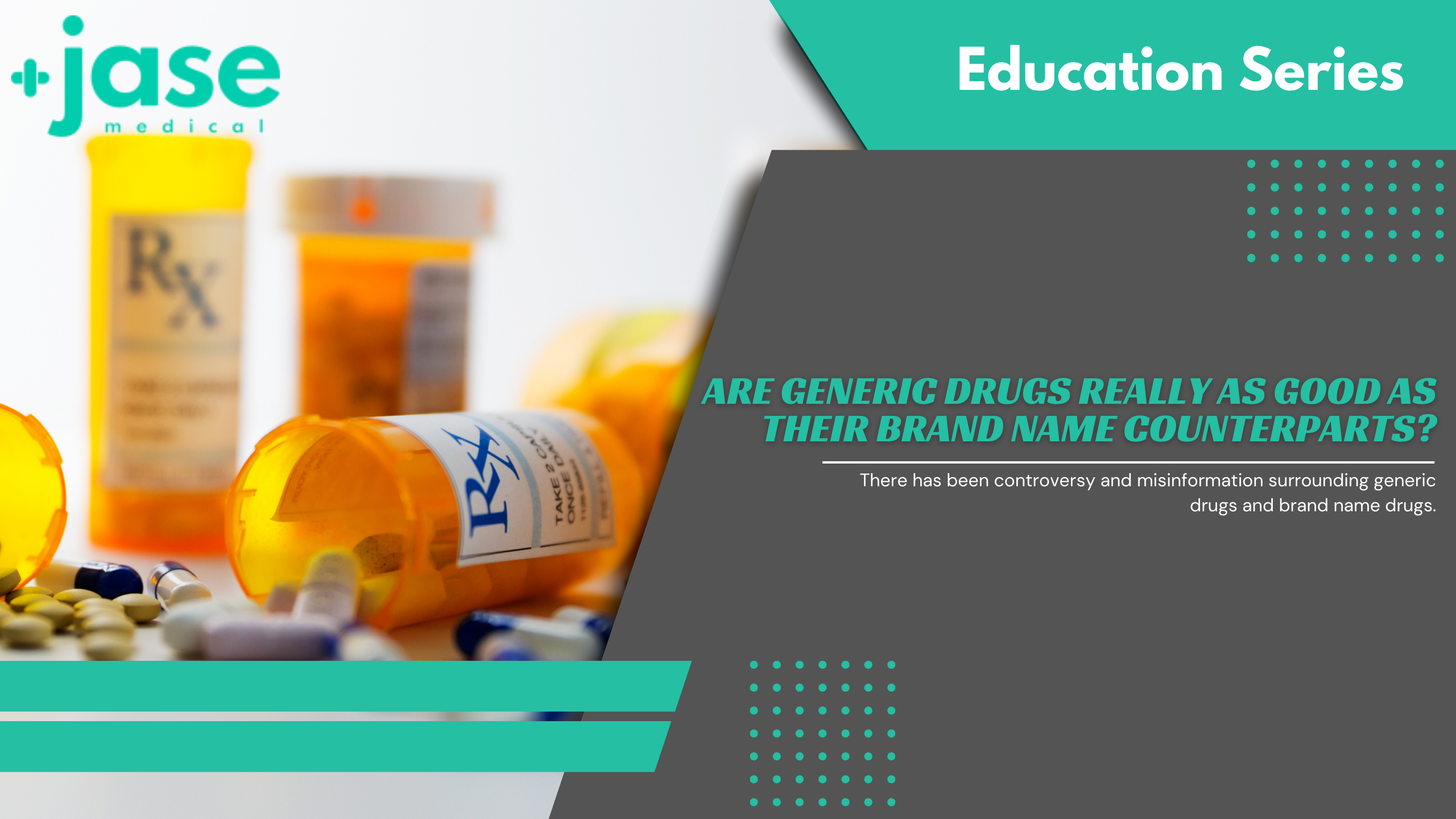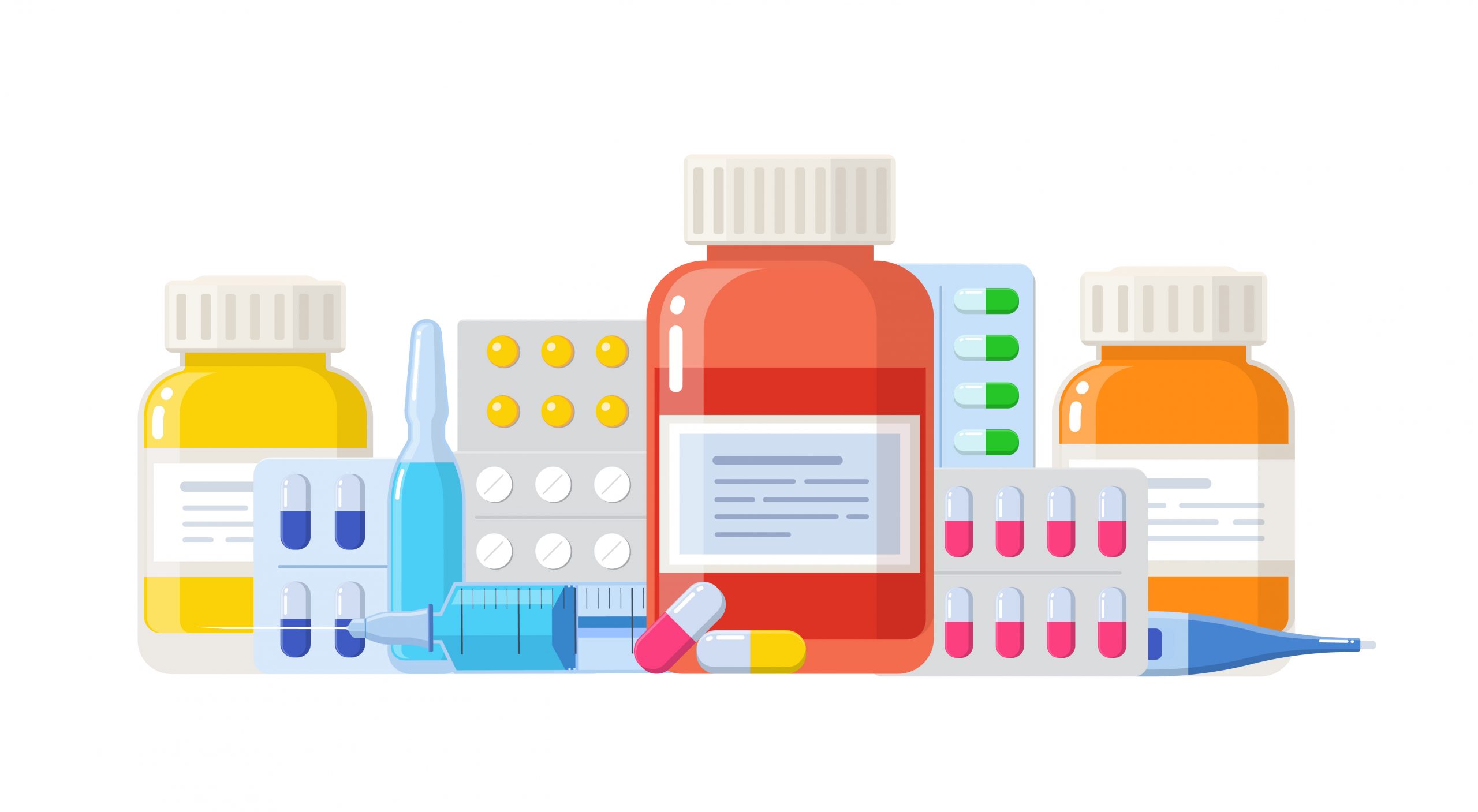
There has been controversy and misinformation surrounding generic drugs and brand name drugs. Some feel that the generic drug isn’t as effective or doesn’t contain the same ingredients as the branded label. However, most prescription filled are generic. In fact, the FDA estimates that 91% of all prescriptions filled are generic drugs.
What is a generic drug?
According to the FDA, a generic drug is a product that compares to the pioneer, or reference, drug product (usually a branded drug) in dosage, route of administration, strength, quality, safety, and performance. The generic drug must have the same intended use as the pioneer product in efficacy compared to their brand name equivalents.

Timeline (abbreviated) of Prescription drugs
- In 1888, the American Pharmaceutical Association (APhA) published the National Formulary to help prevent counterfeiting of branded products.
- In 1906 congress passed with the passage of the Federal Food and Drugs Act. This law required product labeling to prevent misbranding and allowed the government to act if a drug caused injury or death.
- In 1938 Congress passed the Federal Food, Drug, and Cosmetic Act (FDCA) in response to the 1937 Elixir Sulfanilamide incident, which killed 107 people.
- Drugs manufactured before 1938 did not always undergo safety testing which in turn compromised the integrity of the products performance and safety.
- After 1938, any new drugs manufactured were required to be cleared by the FDA before marketed, meaning they had to be proven safe through manufacturer testing before being cleared by the FDA.
- The Durham-Humphrey Amendment of 1951– This amendment formed two categories of drugs- prescription drugs (drugs needing medical supervision) and nonprescription drugs (drugs not needing medical supervision).
- Thalidomide, a controversial sleeping drug that caused malformed babies in Europe, raised public awareness to safety and efficacy of drugs marketed in the US. This, along with other investigations regarding drug safety prompted congress to pass the Kefauver-Harris Drug Amendments in 1962.
Before marketing a drug, firms now had to provide substantial evidence of the drugs safety and effectiveness before approval.
- Published in 1979, the Approved Drug Products with Therapeutic Equivalence Evaluations, AKA “The Orange Book” identifies drug products approved based on safety and effectiveness by the Food and Drug Administration (FDA) under the Federal Food, Drug, and Cosmetic Act (the FD&C Act). Drugs available for approval must not have been withdrawn for safety or effectiveness reasons. In addition, the Orange Book contains therapeutic equivalence evaluations for approved drug products. To read more about the FDA role in approving generic drugs check out their site.
- The Generic Drug Enforcement Act of 1992 imposed penalties for illegal acts related to abbreviated drug applications and required generic drug manufacturers to include more scientific data concerning quality and bioequivalence. An abbreviated drug application is a generic drug that demonstrates the generic drug is the same as the RLD in regards to active ingredients, of use, route, dosage, strength, and labeling and is bioequivalent to the RLD. A reference listed drug (RLD), is a previously approved drug for which an applicant seeks approval of an equivalent.
Placebo/nocebo effect, colorings or additives
Both brand label and generic drugs can contain fillers and additives (such as food coloring) can cause unwanted or serious side effects or reactions. These fillers or additives could be the cause of reactions patients face with both generic and brand name drugs alike.
A study published in 2015 titled “Impact of brand or generic labeling on medication effectiveness and side effects”-using generic and branded ibuprofen- demonstrated the placebo pill that was labeled as a brand named pill had fewer side effects and was more effective than its generic labeled counterpart.
According to a 2019 research study that compared 8 different pharmaceuticals-generic medications compared to their brand label counterparts “observed that use of generics provided comparable clinical outcomes as the brand products.”
- Brooke Lounsbury, RN
Medical Content Writer
Lifesaving Medications
Recent Posts
Keeping you informed and safe.
FAQ: Our most commonly asked questions about Jase
If you’re considering Jase, chances are you’ve paused and thought, “This makes sense, but I still have a few questions.”You’re not alone. Here are the most common ones we hear, answered plainly. Is this really doctor-prescribed? Yes. Every Jase order is reviewed by a...
Medical Readiness: What Really Kills First
When Disaster Strikes, It’s Not Hunger or Thirst That Takes the First Lives In every disaster zone, from hurricanes in the Caribbean to war zones in Ukraine, the pattern is the same. People worry about food and water, but it’s infection that kills first. A small wound...
Exploring Dr. William Makis’ Hybrid Orthomolecular Cancer Protocol: Focus on Ivermectin and Mebendazole/Fenbendazole
Exploring Dr. William Makis’ Hybrid Orthomolecular Cancer Protocol: Focus on Ivermectin and Mebendazole/Fenbendazole *Disclaimer: This article is for educational purposes and does not constitute medical advice. Always seek professional guidance.* In the evolving...



